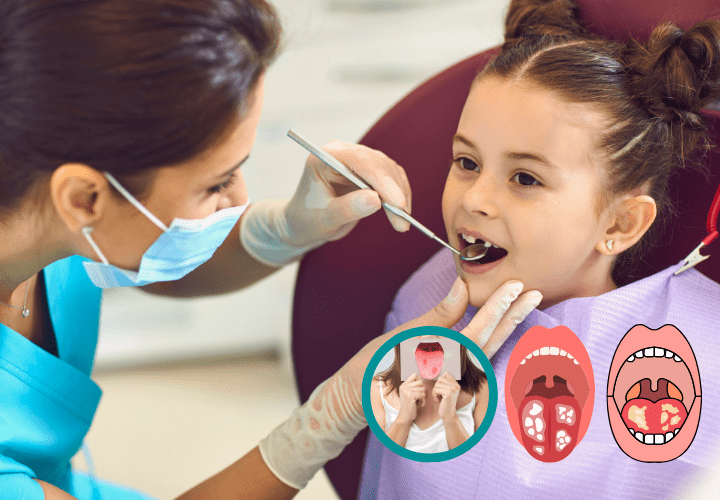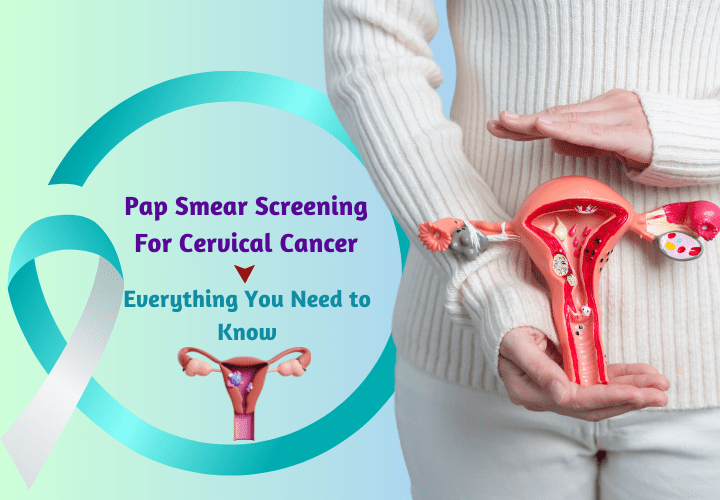How Often Should You Get a Pap Test to Prevent Cervical Cancer?

How Often Should You Get a Pap Test to Prevent Cervical Cancer?
- onco
- August 25, 2023
Cervical cancer is a severe health issue and is diagnosed in more than 500,000 women in a year. It also causes the death of more than 300,000 people worldwide. The uterus and vagina are connected by the cervix, which is where cervical cancer usually develops. The Human Papillomavirus (HPV), a sexually transmitted infection, is the leading cause of most cervical cancers. In most cases, the immune system prevents HPV from causing harm when it is present in the body. The virus, however, can survive for years in a small percentage of people. Some cervical cells are now more prone to develop into cancerous cells. Fortunately, routine Pap tests have shown to be a reliable method of detecting and preventing cervical cancer. However, how often should you have a Pap test? Here we’ll discuss the significance of Pap tests, the suggested timing for getting tested, and why being cautious is essential for preserving women’s health in this blog.
Understanding Pap Tests:
The purpose of a Pap test, sometimes referred to as a Pap smear, is to collect cells from the cervix and examine them for anomalies. If untreated, these anomalies could develop into cervical cancer. Early detection of alterations in the cervix’s cells is the goal of the test, which will enable prompt intervention and prevention.
Why Regular Pap Tests Matter:
Regular Pap tests are essential for avoiding cervical cancer for several reasons, including the following mention below:
- Early Detection: Precancerous cells or cervical cancer in its early stages, which frequently exhibits no symptoms, can be found with Pap tests. Early diagnosis enhances the likelihood of effective therapy and better results.
- Keep an eye on high-risk groups: Women have a higher risk of developing cervical cancer if they have certain risk factors, such as a history of HPV infection or a weakened immune system. If there is a history of this disease in your family, then you may also be at a higher risk of developing this cancer. These high-risk people are regularly monitored thanks to routine Pap testing.
- Prevention: By identifying abnormal cells through Pap tests, medical professionals have the chance to treat or remove them before they develop into malignant stages, so effectively preventing the onset of cervical cancer.
Recommended Pap Test Frequency:
As medical knowledge and technology have advanced over time, the recommended Pap test frequency has changed. Medical organizations’ recommendations are based on things like age, risk factors, and the results of prior tests, as discussed below:
- Ages 21-29: Women between the ages of 21 and 29 are typically encouraged to get a Pap test every three years. This aids in the early detection of any aberrant cell development.
- Ages 30-65: Between the ages of 30 and 65, women can get a Pap test every three years or a Pap test plus an HPV (Human Papillomavirus) test combined every five years. The HPV test can detect the existence of strains of HPV that are high-risk and linked to cervical cancer.
- Ages 65 and up: Unless you have a history of cervical cancer or certain risk factors, older women who have had regular screenings with normal findings may decide to stop getting Pap tests.
- High-Risk Groups: Women who have additional risk factors may require testing more frequently. For advice on the most appropriate screening regimen for your circumstances, speak with your healthcare practitioner.
- Being Alert and Informed: It’s crucial to remember that recommendations may have changed, so speak with your doctor to get the most recent advice tailored to your particular health profile. Additionally, it’s essential to keep up with any changes to screening recommendations and cervical cancer preventive strategies.
A robust weapon in the fight against cervical cancer is routine Pap testing in conclusion. Early abnormal cell detection offers the chance for prompt action and prevention. The best method to ensure the healthiest cervical tissue is to be aware and discuss your screening plan with a healthcare practitioner. Guidelines on the frequency of Pap tests may vary depending on age and risk factors as discussed above. Always prioritize routine checkups because prevention is the key to maintaining your well-being. Or else talk to your doctor about when you should undergo Pap and HPV screening tests so that you don’t miss out on this possibly life-saving chance. If you are also concerned about your health and want to consult with the best cancer specialists, then you should consult with Oncoplus, the finest cancer specialist in Delhi, India. At Oncoplus, we are the first-of-its-kind dedicated cancer care unit following international protocols. The scope of our services is designed to deliver a holistic treatment and diagnosis platform. We are working with social security schemes of India to create a vision of cancer free and cancer conscious India. So let’s fight cancer together and live a happy and healthy life.
Recent Posts
-
Pap Smear Screening for Cervical Cancer: Everything You Need to Know
February 26, 2025





Leave a Reply